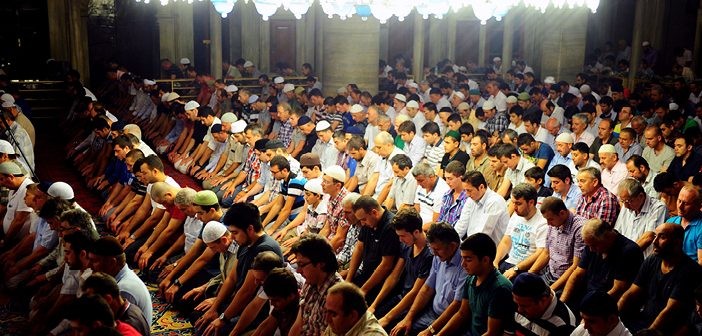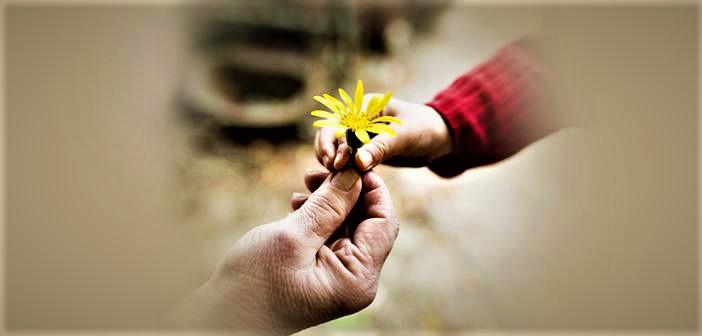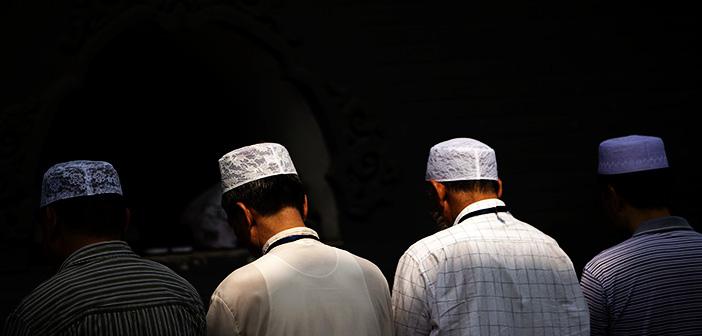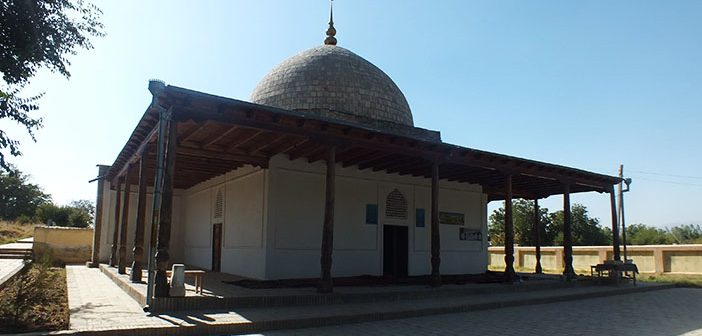
The Manner of Gentleness and Affection
What is the manner of gentleness and affection? What does gentleness means in islam? What does affection mean in islam? What is kidness? The method of spiritual gentleness and affection in serving humanity.
Looking at human beings with the Sufi eye, calls for showing attention to their essence, not their sinful existence. This is one of the deep underlying wisdoms as to how the style of tasawwuf compassionately embraces the sinner, though not the sin. A true Sufi perceives a sinner like a bird with a broken wing, in desperate need of compassionate care. He feels deep inside the concern to give the sinner back his health, attend to his troublesome spirit and let him fly once again. Leniency and compassion for the created for the sake of the Creator is, after all, the most influential means for a Muslim to attain to virtue and maturity.
It is reported that during his time as judge in Damascus, Abu’d-Darda -Allah be well-pleased with him- heard a group publically condemning another man, supposedly a sinner.
“If you were to see a man fallen in a pit”, he asked them, “what would you do?”
“We would hang down a rope and try to drag him out”, they replied.
“In that case, do not speak ill of him. Instead, thank Allah for your wellbeing and try to save your brother who has fallen into the pit of sin.”
“Wouldn’t you be hostile towards this sinner?” they asked, astounded.
A Companion reared by the unique training of the Blessed Prophet -upon him blessings and peace-, Abu’d-Darda -Allah be well-pleased with him- gave them the magnificent response below:
“I am an enemy of his sin, not his person. He is again my brother of religion, the moment he abandons his sin.”[1]
These are profound qualities Abu’d-Darda -Allah be well-pleased with him- wishes to convey. Such qualities are glimmers from the Prophet’s -upon him blessings and peace- exceptional moral conduct, in harmony with the command and pleasure of the Lord. Falling on the fertile soil of righteousness, these qualities have been perceived throughout the history of Islam as measures of spiritual maturity and means for providing the light and joy of guidance.
This style is an attempt to purify the sinner in the waters of tolerance, forgiveness, compassion and love, without drowning him in his sin. The Blessed Prophet -upon him blessings and peace- approached even the most ingrained idolaters like Abu Jahl with this sensitivity, never meddling with their debauchery or dragging their sins into light, only inviting them to swim to utter purification in the cleansing waters of iman, the sea of salvation and happiness. Awaiting us is indeed great lesson in the fact that Allah, glory unto Him, completely erases the past sins of those who sincerely repent, as if they were never committed in the first place, even turning past misdeeds into rewards, depending on the level of sincerity shown by the repenter. The ayah states:
“Except him who repents and believes and does a good deed; so these are they of whom Allah changes the evil deeds to good ones; and Allah is Forgiving, Merciful” (al-Furqan, 70)
Those who do not have an inkling of this grand compassion are enemies to both themselves and humankind. Ruthless persons of the kind, without the least mercy and compassion, are to be pitied for blocking the avenue for their eternal happiness with their very own hands. In contrast, people like Yunus and Mawlana, triumphant in tapping to the source of mercy, are like the sweet roses of Paradise, adored not only by human beings, but also by animals, from the savage wolf to the gentle wren. Even with their thorns, they emit beauty to their surroundings, treating wounded souls. Embodying the nature of a rose, that is the key. Not to be a thorn from top to bottom due a feeling of dejection from seeing to many thorns in the garden that is the world, but to embrace them all and bud as a rose, even in spite of the freezing winter that disrupts the coming of spring. Mawlana Rumi -may Allah sanctify his secret- says it wonderfully:
“It was because it did not fear the night and flee the dark that moon became lit and began to spread light. And the rose acquired that wonderful scent for getting on well with the thorns.
Listen to this truth from the rose; look, it says, ‘Why should I feel down and lose myself in grief for being with the thorn? I acquired this smile for nothing other than putting with the thorn’s company. It is through him that I am able to give out beautiful scents to the world…”
Eşrefoğlu Rumi -may Allah sanctify his secret- gives poetic voice to the approach needed to acquire this mindset:
For that Friend, one ought
To swallow poison like sweet
Fed up from punishing a man, time and again, for drinking, a Companion had cursed him. On hearing this, the Blessed Prophet -upon him blessings and peace- said: “Do not curse him. I promise in the name of Allah that if there is one thing I know about him, it is that he loves Allah and His Messenger.” (Bukhari, Hudud, 5)
A student of the late Mahmud Sami Ramazanoğlu -may Allah sanctify his secret-, suffering from depression, had a lapse in judgment and arrived at the door of his master, drunk. The person who happened to open the door reproached him.
“Look at you!” he said. “Do you know to whose door you have just come?”
“Yes, I do” the helpless and forlorn student then replied. “But is there any other door that can give a warm hug?”
Sami Effendi -may Allah sanctify his secret-, hearing the entire conversation, quickly came to the door and took his emotionally hurt student inside, ushering him to the palace of his heart. He revived his desolate heart with love, mercy and compassion. Privileged to receive such sensitive treatment, the student, in no time, abandoned his bad ways and joined the ranks of the righteous.
The gist of ‘looking at the created through the sight of the Creator’, an exceptional approach exemplified in the lives of the righteous, is beautifully expressed in the following hadith:
“By Allah in whose Hand of Might my life resides, you cannot enter Paradise unless you are compassionate towards one another.”
“We are all compassionate, Messenger of Allah” said the Companions.
“What I mean by compassion”, explained the Blessed Prophet -upon him blessings and peace- “is not just compassion towards one another in the sense you understand. Much rather, it is a compassion that encompasses entire creation…a compassion that encompasses entire creation.” (Hakim, Mustadrak, IV, 185)
No matter how remote a human being may be from his essential purpose, he is still honorable, since he is a ‘human being’. That he is bogged down in the swamp of sin, unaware of the highness embedded in his essence, is perhaps comparable to the Black Stone, hanging on the wall of Kaaba, falling down and becoming dirty. Should such a thing occur, it would be inconceivable for any Muslim conscience to remain indifferent and carry on as if nothing has happened. Even when in dirt, Muslims still would not remain back from treating the Stone with respect. They would pick it up from the ground along with its dirt, clean it up with tears in their eyes and vie with each other to replace it to the high spot where it belongs. Remembering that it originated from Paradise, they would overlook its outward dirt and regard its essential worth. Yet, just like the Black Stone, a human being, too, is from Paradise. Regardless of how fallen he becomes through sin, his essential worth remains intact.
No competent doctor would become angry with a patient for having caught an illness. Even if the illness may have been caused by the patient’s recklessness, he would ascribe the cause to the patient’s vulnerability, be it physical or mental. So instead of becoming angry with a patient for any role he may have played in becoming infected, the doctor sympathizes with his pain and gets his treatment under way, kindly and compassionately, without wasting any time. He feels responsible for the patient’s recovery. A Sufi, too, lives in society in the mindset of a doctor walking inside a hospital ward, a mindset that acts like a lifejacket for those strayed offshore.
Extending a lifejacket of the kind and pulling one out of the billowing waves of sin, provides an enormous means of eternal happiness. The advice the Blessed Prophet -upon him blessings and peace- gave Ali -Allah be well-pleased with him- on the battlefield of Khaybar is of immense importance: “Ali…For a person to be guided through you is better than you owning a valley of red camels.” (Bukhari, Jihad, 143)
This truth is further reverberated in an ayah:
“…and whoso saves the life of one, it shall be as if he had saved the life of all mankind.” (al-Maidah, 32)
This is an issue of faith. Disbelief is doubtless the heaviest crime thought and emotions can commit. Since a kinder, more lenient approach offers a greater chance of rescue from disbelief, when the Almighty sent Musa (a.s) to the Pharaoh to advise him with belief, He commanded the Prophet speak with a lenient tone (qawl-i layyin). The Almighty was certainly not unaware of the intensity of the Pharaoh’s unbelief. So even if the person be as stubborn and ingrained as the Pharaoh, we must not let our emotions get the better of us and use a threatening, intimidating tone. Instead, we must let ourselves be guided by the Divine teaching that strongly encourages us to adopt a soft tone of speech. Mawlana Rumi -may Allah sanctify his secret- underlines this beautifully:
“Fully comprehend the Lord’s words to Musa, ‘speak softly with the Pharaoh, show him leniency’.
By pouring water onto boiling oil, you will wreck both the stove and the pot.”
The following ayah where the Almighty addresses His Messenger -upon him blessings and peace- and the entire ummah in his person, gives voice to this very fact:
“It was by the mercy of Allah that you were lenient with them (O Muhammad), for if you had been stern and fierce of heart, they would have dispersed from round about you. So pardon them and ask forgiveness for them…” (Al- Imran, 159)
Adopting this approach is necessary not only towards nonbelievers and sinners, but also towards Muslims carrying certain weaknesses and faults of human nature, who otherwise lead exemplary Islamic lives. An approach that puts down a person and hurts him emotionally, when it was supposed to simply correct him in the first place, may even have the opposite effect and contrary to the original intention, push the person further down the path of sin. Persons, who are told off in this manner, can become restless even towards their own parents; and it is indeed more difficult from them to put up with this approach when it comes from the way of another. Even truths said in a stern manner act like knives shredding through the skin, losing all their benefit and appeal. Mawlana Rumi -may Allah sanctify his secret- says:
“Even your father appears like a monster, savage and ruthless, when he cautions you over a fault. This is the effect of the grief emitted by his harsh reprimand. Even though a father’s reprimand is for your benefit, the harshness of his reprimand makes the compassion and pity in his heart, appear to you like a monster.”
This psychological nature of man must always be borne in mind and no matter how deeply bogged in sin a person may be, his essential worth must never be forgotten. It is for this reason that the Blessed Prophet -upon him blessings and peace- says:
“Belittling a Muslim brother suffices for one as sin.” (Muslim, Birr, 32)
Inspired by the above hadith, Bezmialem Valide Sultan founded a trust in Damascus, to compensate for the things her servants may break, lest they felt humiliated over they accidentally caused. And this is an exemplary mindset that speaks for itself.
A Muslim of such consciousness ought to direct criticism to himself and tolerance to another; for the Almighty declares: “And spy not, neither backbite one another. Would one of you love to eat the flesh of his dead brother? You abhor that (so abhor the other)!” (al-Hujurat, 12)
Ideal human beings, who have been able to conduct themselves within these Divine guidelines, have been able to become heroes of virtue and morality, never detaching a consideration of the world from the Hereafter. One such example is Sheikh Edebali, a sultan of spirituality and the spiritual guide of Osman Gazi, one of the most prominent commanders to have given shape to history. The Sheikh’s profoundly meaningful advices to Osman Gazi are of immense value to all administrators, from the highest to the lowest rank, and above all, to family members in their conduct towards one another:
“Son…You are a chieftain! From now on, anger is onto us, meekness onto you. Resentment is onto us, restoring relations onto you. Accusing is onto us, forbearance onto you. Helplessness and error are onto us, tolerance onto you. Discord, clashing and disagreement are onto us, justice onto you. Malicious looks and words and unjust remarks are onto us, forgiveness onto you.
From here on, son, dividing is onto us, uniting onto you. Laziness is onto us, cautioning, encouraging and shaping onto you…”
These unique advices are nothing but an exceptional manifestation of a richness of heart and the highness of virtue that can easily forgive personal mistreatment for the sake of Allah, glory unto Him, and regardless of the given circumstances, perceive the servants of the Lord compassionately, with love and affection.
Even when there was a case where it was obvious a certain person was guilty of a misdeed, in order not to humiliate him, the Blessed Prophet -upon him blessings and peace- never used to point the finger at him publicly, instead making him virtually anonymous by cautioning the entire group over the fault. At times, to suggest he was far from impressed over a given misdeed, he would even go as far as ascribing to himself an error vision, and say:
“What is it with me that I see you like this?” (Bukhari, Manaqib, 25; Muslim, Salat, 119)
This is the delicate manner of protecting the guilty person from embarrassment and humiliation, a common quality of all who understand and live a Sufi life in the truest sense. The road to the Lord runs not through wrecking hearts but mending them, as elaborately said by Yunus Emre:
The heart is God’s throne,
On the heart God shone,
In both words will bemoan,
He who wrecks a heart…
To be sure, many an outcast, condemned and alienated over his faults, has been won back over to the land of mercy, solely through the blessings of this delicate method.
[1] See, Abdurrazzaq, Musannaf, XI, 180; Abu Nuaym, Hilyah, 1/225.
Source: Osman Nuri Topbaş, Sufism, Erkam Publications
Prayer (Dua)
EMBOYDYING GOOD MORALS














